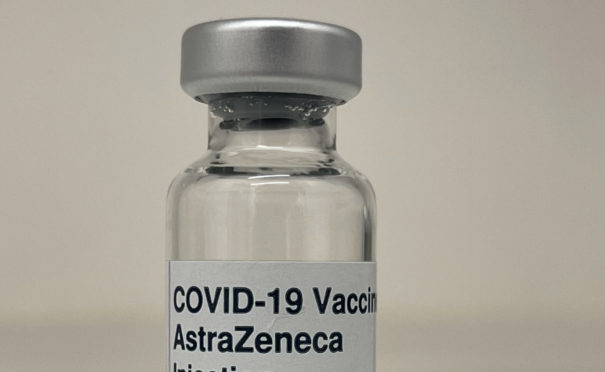
Under-30s in the UK will be offered alternatives to the Oxford/AstraZeneca vaccine following evidence of links to rare blood clots.
Due to a very small number of blood clots in younger people reported in the UK, they will be offered the Pfizer or Moderna jabs instead.
The Medicines and Healthcare products Regulatory Agency (MHRA) said it was still a huge asset in preventing Covid-19, and has not concluded that the vaccine causes rare clots, although it says the link is getting firmer.
The UK medicines watchdog also said the benefits of the Oxford/AstraZeneca vaccine continue to outweigh any risks for most people.
Dr June Raine, chief executive of the MHRA, told a press briefing the clots were “extremely rare” and the benefits of the jab were clear.
She added: “The evidence is firming up and our review has concluded that while it’s a strong possibility, more work is needed to establish beyond all doubt that the vaccine has caused these side effects.”
Professor Wei Shen, chairman of the Joint Committee on Vaccination and Immunisation (JCVI) said the recommendation to prefer other vaccines to AstraZeneca for the under-30s was “out of the utmost caution” rather than because of “any serious safety concerns”.
Up to March 31, the MHRA has received 79 reports of blood clots accompanied by low blood platelet count, all in people who had their first dose of the vaccine, out of millions of doses given.
Of these 79, a total of 19 people have died, although it has not been established what the cause was in every case.
The 79 cases occurred in 51 women and 28 men, aged from 18 to 79.
Of the 19 who died, three were under the age of 30, the MHRA said.
Some 14 cases of the 19 were cerebral venous sinus thrombosis (CVST), a specific type of clot that prevents blood from draining from the brain.
The other five cases were other kinds of thrombosis in major veins.
The MHRA has concluded that the balance of risk for the vaccine is very favourable for older people but more finely balanced for younger groups.
England’s deputy chief medical officer Professor Jonathan Van-Tam said the changes being proposed to the vaccination rollout were a “course correction”.
He told a press conference: “The UK vaccine programme has been the most enormous success indeed.
“If you had said to me that by March 2021 we would not have needed a course correction, that also would have amazed me.”
He said it was “quite normal” and “business as usual” for medics to alter their preferences on how to treat patients.
“This is a massive beast that we are driving along at enormous pace with enormous success, this vaccine programme,” he said.
“If you sail a massive liner across the Atlantic then it’s not really reasonable that you aren’t going to have to make at least one course correction during that voyage.”
It comes as a review by the European Medicines Agency’s safety committee concluded on Wednesday that “unusual blood clots with low blood platelets should be listed as very rare side effects” of the Oxford/AstraZeneca vaccine.
Emer Cooke, executive director of EMA, said its review “confirmed that the benefits of the AstraZeneca vaccine in preventing Covid-19 overall outweigh the risk of side effects”, adding: “Vaccination is extremely important in helping us in the fight against Covid-19.”
Dr Sabine Straus, safety committee chairwoman at the EMA, said: “This vaccine has proven to be highly effective, it prevents severe disease and hospitalisation and it is saving lives.
“Vaccination is extremely important in helping us in the fight against Covid-19 and we need to use the vaccines we have to protect us from the devastating effects.”
She said the EMA’s safety committee had “after a very in-depth analysis”, concluded that “the reported cases of unusual blood clotting following vaccination of the AstraZeneca vaccine should be listed as possible side effects of the vaccine.”
In the UK, the MHRA said that those who have had their first dose of the AstraZeneca vaccine should still get their second dose.
Only those who suffered a rare blood clot after the first dose should not get vaccinated.
Anyone with blood disorders that leave them at risk of clotting should discuss the benefits and risks of vaccination with their doctor before going for a jab.

Enjoy the convenience of having The Sunday Post delivered as a digital ePaper straight to your smartphone, tablet or computer.
Subscribe for only £5.49 a month and enjoy all the benefits of the printed paper as a digital replica.
Subscribe